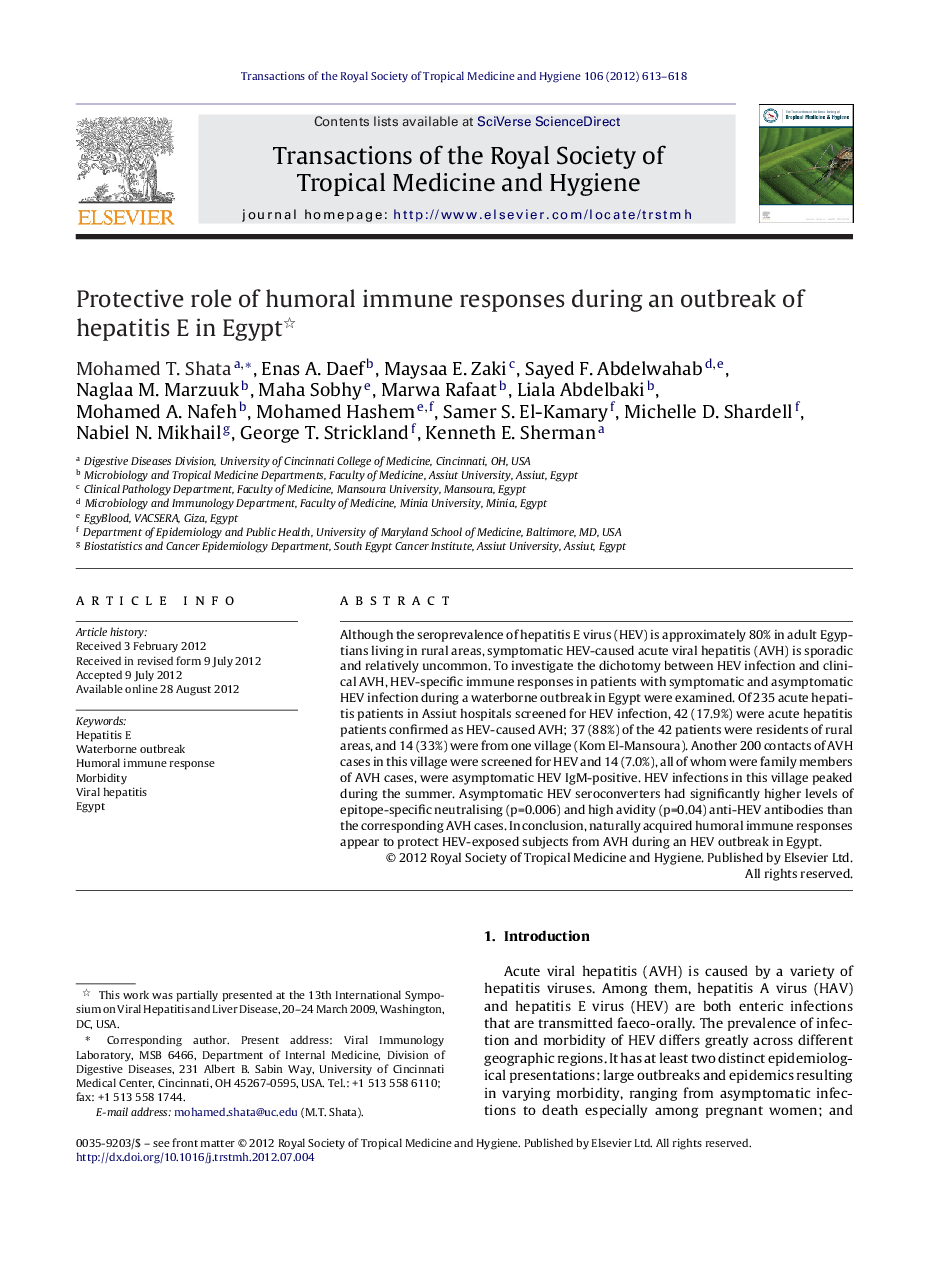| Article ID | Journal | Published Year | Pages | File Type |
|---|---|---|---|---|
| 6137257 | Transactions of the Royal Society of Tropical Medicine and Hygiene | 2012 | 6 Pages |
Abstract
Although the seroprevalence of hepatitis E virus (HEV) is approximately 80% in adult Egyptians living in rural areas, symptomatic HEV-caused acute viral hepatitis (AVH) is sporadic and relatively uncommon. To investigate the dichotomy between HEV infection and clinical AVH, HEV-specific immune responses in patients with symptomatic and asymptomatic HEV infection during a waterborne outbreak in Egypt were examined. Of 235 acute hepatitis patients in Assiut hospitals screened for HEV infection, 42 (17.9%) were acute hepatitis patients confirmed as HEV-caused AVH; 37 (88%) of the 42 patients were residents of rural areas, and 14 (33%) were from one village (Kom El-Mansoura). Another 200 contacts of AVH cases in this village were screened for HEV and 14 (7.0%), all of whom were family members of AVH cases, were asymptomatic HEV IgM-positive. HEV infections in this village peaked during the summer. Asymptomatic HEV seroconverters had significantly higher levels of epitope-specific neutralising (p=0.006) and high avidity (p=0.04) anti-HEV antibodies than the corresponding AVH cases. In conclusion, naturally acquired humoral immune responses appear to protect HEV-exposed subjects from AVH during an HEV outbreak in Egypt.
Related Topics
Life Sciences
Immunology and Microbiology
Applied Microbiology and Biotechnology
Authors
Mohamed T. Shata, Enas A. Daef, Maysaa E. Zaki, Sayed F. Abdelwahab, Naglaa M. Marzuuk, Maha Sobhy, Marwa Rafaat, Liala Abdelbaki, Mohamed A. Nafeh, Mohamed Hashem, Samer S. El-Kamary, Michelle D. Shardell, Nabiel N. Mikhail, George T. Strickland,
